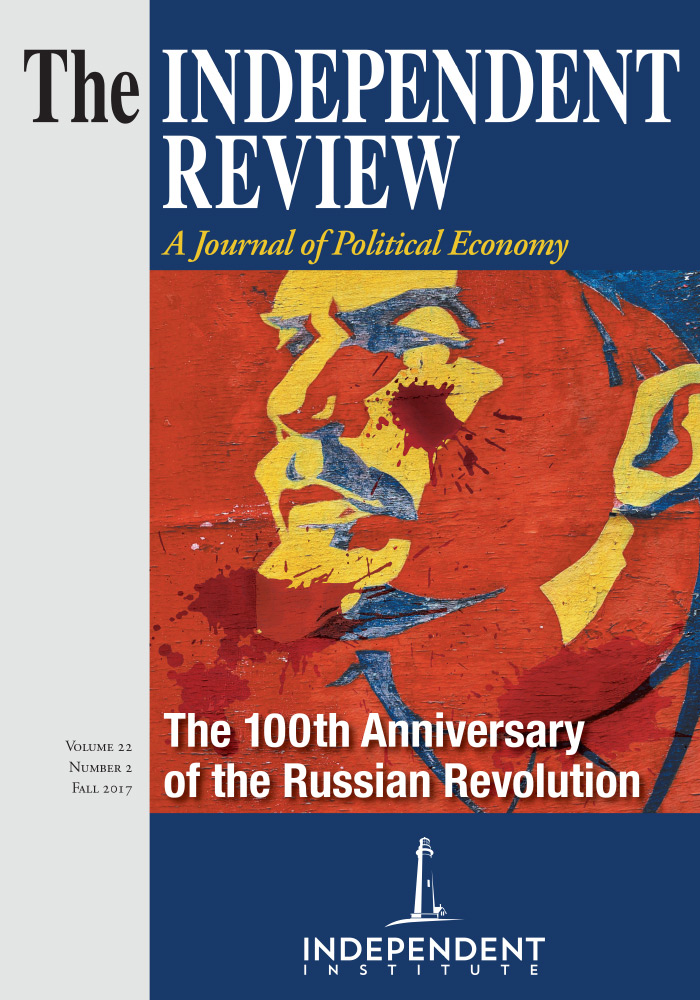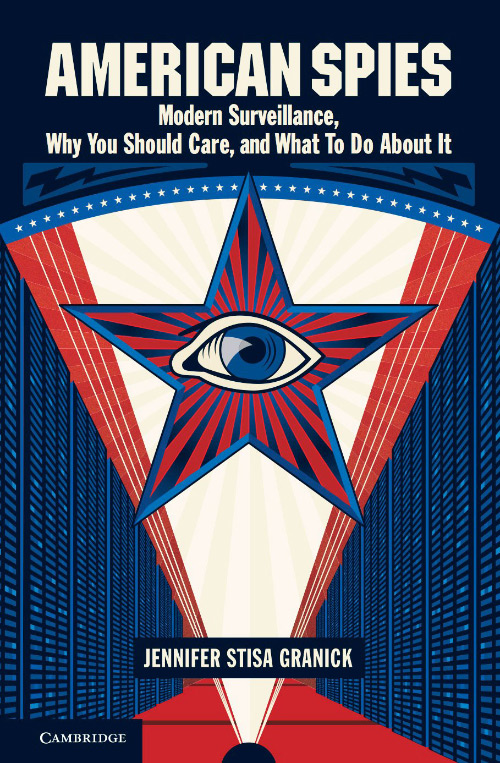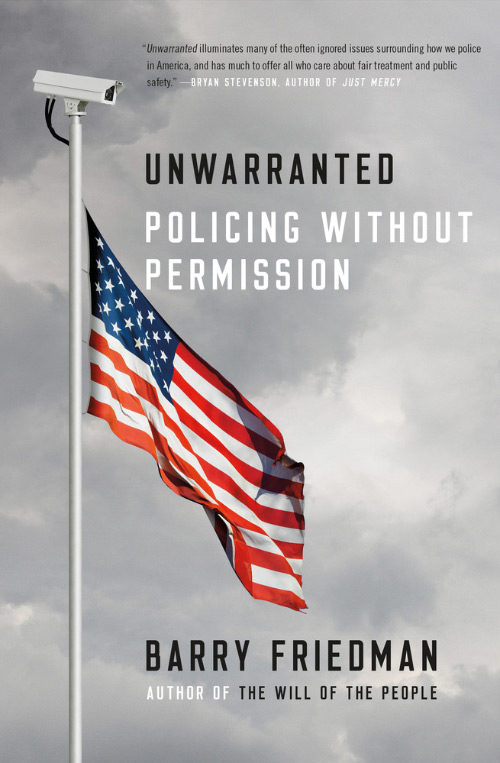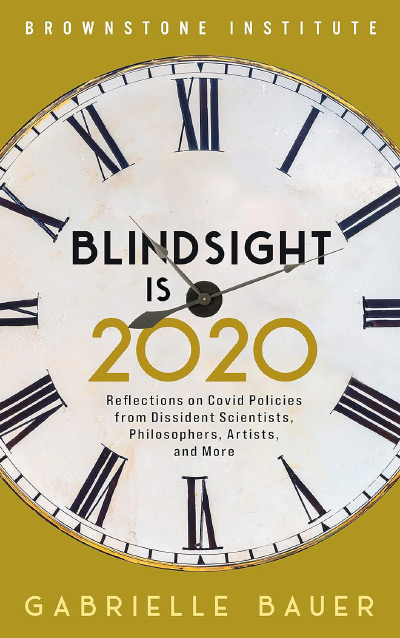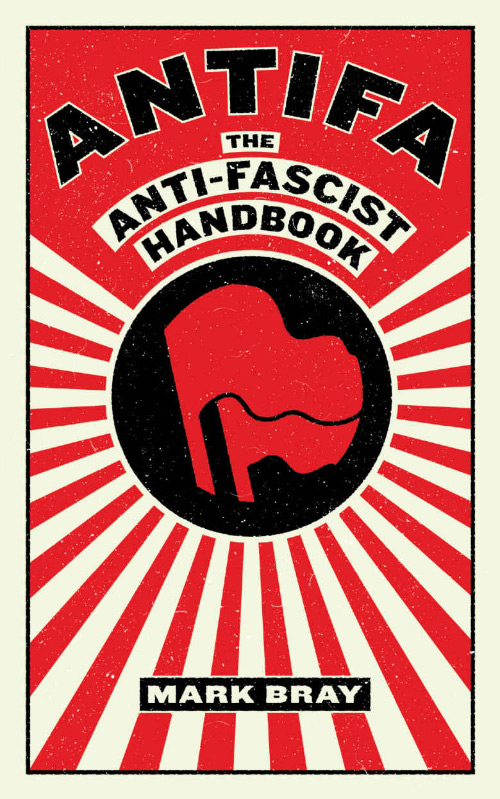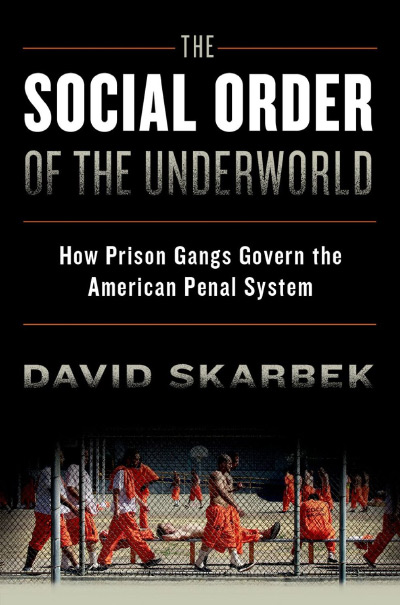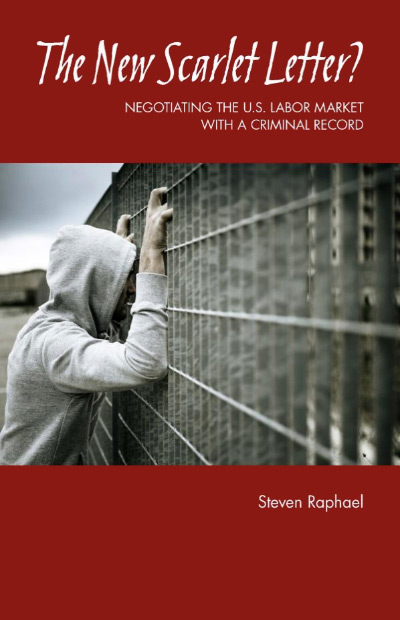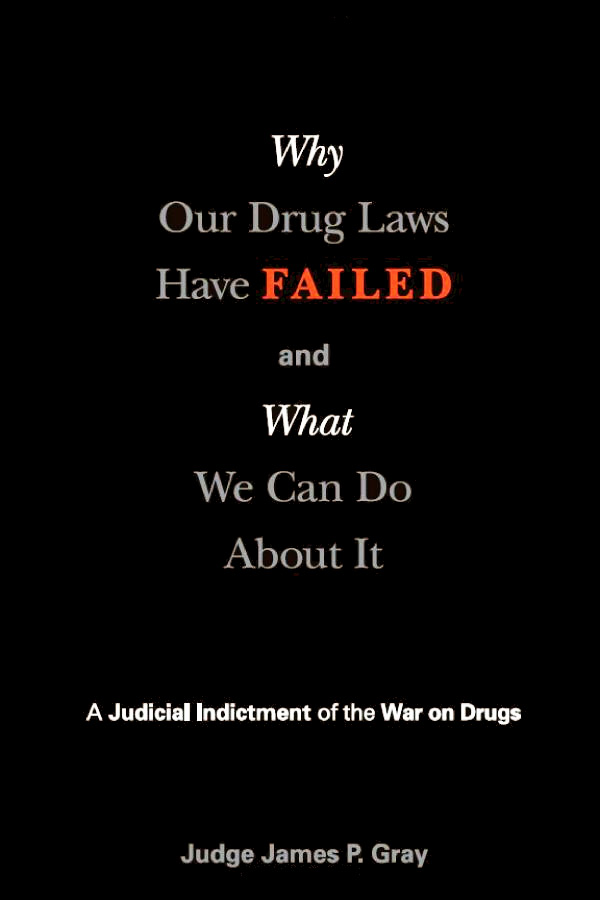Black Mirror is a popular science fiction anthology television series exploring the effects of technological advances on modern life. The title refers to the black screens of the various technological devices prevalent throughout our lives. As anyone who has watched the show knows, the emphasis is often on the perverse effects of technology. American Spies by Jennifer Stisa Granick and Unwarranted by Barry Friedman, could easily serve as material for Black Mirror episodes. Both books explore the role of technology in our lives with specific focus on the awesome powers that they give to government to surveil and control citizens. But while Black Mirror is science fiction, these books are not, which is what makes them so important and so frightening. Together they make clear the perverse effects of expansions in the scope of government powers which are both enabled by, and reinforced through, advances in technology.
American Spies is a dense book, meticulously cataloging and presenting various aspects of the U.S. surveillance state. To date, it is the best single book I have read for understanding the breadth of the U.S. government’s surveillance operations. Granick, the Director of Civil Liberties at the Stanford Center for Internet and Society at Stanford Law School, presents complex information—both related to technology and the law—in a clear and accessible manner. In doing so she identifies the absence of constraints to prevent government abuses of its tremendous surveillance powers. The reality is that the “United States [government] is collecting vast amounts of private data, including about American citizens and even more about people around the world. Behind closed doors, judges are making secret law, adopting laughably bad interpretations of statutes, and invalidating constitutional privacy protections in the name of spying on innocent people. Spies are hacking the Internet, installing malicious software, and stealing encryption keys so they can carry on mass surveillance” (p. 2). This stands in stark contrast to the common, bi-partisan political rhetoric that makes the U.S. government’s surveillance activities sound as if they are minimal, targeted, and limited to only genuine threats with little to no negative effects on the privacy and liberties of the American people.
American Spies not only provides an extensive overview of the architecture of the security state, but also offers insight into important nuances of its operations. One of the most powerful chapters (Chapter 2) documents the Orwellian double speak employed by those operating the surveillance state. Simply put, those in the surveillance state do not use words in the same way that ordinary people do. This bastardization of plain English allows them to lie about their activities and, in the process, avoid oversight and accountability from Congress and the general public. Consider, for instance, the word “surveillance.” Granick defines it as most ordinary people would to mean the “government collection of private and personal information: address books, buddy lists, photos, phone numbers, web history, geolocation data, and more” (p. 28). But that is not how those in the surveillance state use the word. For them, surveillance means “electronic surveillance” which is defined in the Foreign Intelligence Surveillance Act (FISA) so narrowly that many forms of data collection are excluded. The result is that “officials can say they do not conduct ‘surveillance’ even when they are collecting personal data like phone numbers, Internet transactional records, face prints, and geolocation data’ (p. 28). Similar problems plague the use of other common surveillance terms such as “bulk” and “target.” In each instance the government is able to make their activities sound passive, minimal, and non-threatening simply by re-defining what they do, thus masking the true extent of their actions.
Granick covers numerous other topics of interest to those concerned with government overreach and the concomitant erosion to civil liberties. One chapter discusses the importance of whistleblowers for democratic accountability (chapter 3), which is especially important in the face of past abuses of surveillance by government authorities (chapter 9). Contrary to political rhetoric, a significant portion of the American population is subject to the U.S. government’s foreign intelligence net (chapter 7) and subject to warrantless wiretapping (chapter 8). While the surveillance state has a long history, the post-9/11 “war on terror” created space for the state to discard already shaky shackles to expand its power over Americans and foreigners (chapters 12-14).
Beyond eroding civil liberties, Granick also makes a convincing argument that the government’s surveillance activities make Americans less safe (chapter 16). They do so by identifying existing security flaws in operating systems and software which they can exploit and keeping them secret as compared to making producers aware so they can create appropriate patches. In addition, the security state actively creates cyber vulnerabilities that it can exploit to surveil users. The issue is that these same flaws can be taken advantage of by foreign and domestic hackers (private and government actors). Insecurity is further fueled by the over-collection of information which makes it difficult for analysts to identify quality intelligence and increases the chance of overlooking key information (Chapter 6). Granick’s central conclusion is that “Mass surveillance and democracy are fundamentally incompatible,” because the “secrecy and lies required to spy on everyone are inconsistent with a democratic government of, by, and for the people” (p. 8).
Granick concludes with some prescriptions for constraining the surveillance state. These include reducing, or ending, secret law so that the public has some sense of surveillance laws and decisions by courts (especially the FISC, or Foreign Intelligence Surveillance Court), increasing protections for whistleblowers, and improving oversight. Finally, Granick calls for renewed discussion regarding the risks and rewards of state surveillance activities which requires an informed and caring citizenry.
Compared to American Spies, Unwarranted casts a broader net of what constitutes policing. Barry Friedman, the director of the Policing Project at the New York University School of Law, argues that “policing in the United States—from the overzealous beat cop all the way down to the NSA—is out of control” (p. 16). Given his broader focus, Unwarranted does not provide the level of detail regarding state surveillance that one finds in American Spies. But this is what makes the books such nice complements. The central strength of American Spies is its level of detail regarding the operations and nuances of the surveillance state. The strength of Unwarranted is that it documents state overreach across a wide range of policing functions. From local search and seizure to national surveillance, Friedman illustrates how the scope of government powers has expanded and highlights the absence of appropriate mechanisms to limit abuses. Stories from the experiences of ordinary people are provided throughout the book to illustrate abuses of police powers in a variety of contexts. It quickly becomes evident to readers that they, or their family members, could easily find themselves in similar situations, largely helpless in the face of the vast, discretionary power of the police.
Friedman places blame at the foot of American citizens who, in his view, have failed to take responsibility for overseeing the policing functions of the state. He makes the argument for “democratic policing” which “is the idea that the people should take responsibility for policing, as they do for the rest of their government, and that policing agencies should be responsive to the people’s will” (p. 27). In his view this lack of democratic regulation, in conjunction with increased secrecy over time, has resulted in expanded powers which have often been misused. According to Friedman, legislators lack the incentive to design effective rules to constrain police (chapter 2). Instead, they pass the buck to the courts who are not in a position to write detailed rules to prevent abuses (chapter 3). That said, courts are not helpless and do have a central role to play, according to Friedman, by refusing to allow police to act without democratic authorization (chapter 4). Courts, he argues, “could make a sound contribution if they just began to ask the one simple question: Was this authorized” (p. 113)? By refusing to allow police to act when the answer to this question is “No,” courts can help promote democratic policing.
After establishing the foundations of democratic policing, Friedman turns to a discussion of how constitutional safeguards apply to policing activities. This includes a discussion of warrants (chapter 5), search and seizure (chapter 6), drug interdiction and airport security (chapter 7), and profiling (chapter 8). For each topic Friedman considers the current safeguards in place as well as their use or neglect. The central theme that emerges across these discussions is that abuse of police powers “results from a failure of courts to implement what the Constitution requires” (p. 115).
The final portion of the book (chapters 9-12) considers how the insights from previous chapters apply to changes in technology and terrorism. The central focus is on how technological advances enable governments to obtain significant amounts of information on citizens. Technological advances, combined with the “war on terror” have magnified the tendency for police to carry out their activities in secret. This tendency, however, is at odds with democratic and constitutional policing. During emergencies there are often calls for the skirting of rules to check abuses in the name of expediency and security. In contrast to this view, Friedman concludes that “the Constitution is not at war with our safety; properly understood, it is integral to it” (p. 209). Like Granick, he sees an important role for whistleblowers. Discussing the Snowden revelations, he notes that “in a world in which policing moves behind closed doors and happens surreptitiously, these sorts of leaks may be the only clue we get about what the government is doing. And we cannot govern without knowing” (p. 311).
Friedman concludes with a call for a dramatic shift in the way that we view policing and, specifically, the relationship between police and citizens. Returning to the theme of democratic policing, he calls for renewed engagement on the part of the public to actively shape the rules governing the police who are supposed to serve them. Within this democratic process, “the rules are written down, debated, rewritten, and only then formally adopted. That is what democratic governance looks like” (p. 315, emphasis original). This process is to be complemented by the courts which “need not, in the name of the Constitution, either bless police tactics or rule them out of bounds. Instead they can act as agents of democracy, in effect forcing policing officials to get democratic approval before they proceed” (p. 320).
Both American Spies and Unwarranted are important books that deserve a wide readership. They are individually powerful but together paint a broad and disturbing picture of policing in the United States. The concluding recommendations of each book will leave the reader wanting. The challenge for Granick and Friedman is that they want to maintain the state’s current role in surveilling and policing citizens but want to determine, and ultimately implement, mechanisms to ensure those powers can only be used for good. But given the expansive scope and scale of the entrenched status quo, as well the incentives facing those in government and the citizenry, it is unclear that this is a feasible path.
For example, given the very dysfunctions that Granick identifies in current oversight—internal oversight within the NSA and external oversight by legislators and the courts—it is not clear how, or why, those involved would ever change their behavior. Similarly, Friedman’s calls for democratic policing are not without their problems. A large literature in public choice economics has highlighted many of the flaws in democratic decision making. To name just one, democracy can generate a “tyranny of the majority” whereby the majority of voters can trample on the rights of the minority absent appropriate constraints. Friedman is not unaware of these issues, recognizing that democracy has significant costs and that many of the current issues with policing are the result of past democratic decisions. He writes that “majority rule does not always bode well for the treatment of minorities, racial, religious, or otherwise. The majority tends to want lower crime rates, and doesn’t care who is inconvenienced—or worse—to get them” (p. 307). After recognizing these potential costs, however, he challenges the reader to offer alternatives noting that “in the end, though, what better option do we have, really?” (p. 307).
One option not considered by either author is to move away from the state monopoly provision of policing. The economist Bruce Benson (To Serve and Protect: Privatization and Community in Criminal Justice, Oakland, CA: The Independent Institute, 1998 and The Enterprise of Law: Justice Without the State, Oakland, CA: The Independent Institute.) has studied the state monopoly on the provision of police and justice, calling into question the need for government to provide these services (see also Edward P. Stringham, Anarchy and the Law: The Political Economy of Choice, Oakland, CA: The Independent Institution, 2007 and Private Governance: Creating Order in Economic and Social Life, New York: Oxford University Press, 2015). As his analysis demonstrates, the state monopoly results in law becoming influenced, shaped, and controlled by special interests such that the justice system no longer serves the interests of ordinary citizens. As this process unfolds, we get exactly the type of outcomes that Granick and Friedman identify—a weakening, if not outright removal, of accountability between police and the citizens they purport to serve. This outcome is a result of the systematic features of the state monopoly on policing which is why asking those within the system to dramatically reform these institutions in the name of constraining themselves is a non-starter.
Ending the state monopoly on policing will sound radical to many readers. But is it? Is it any more radical than the belief that the members of a massive entrenched monopoly government endowed with the awesome powers of policing described in these books will take active steps to constrain themselves? Given how deep-rooted the current system is, and given the significant influence and privilege it grants to those controlling the levels of power, such proposals seem extremely radical if not outright pipedreams. Granick and Friedman provide an important service by repeatedly demonstrating how government has produced bad laws and policies and actively engaged in policing activities which have destroyed the liberties of private persons. Given this empirical evidence, one is left asking why the authors assume that the solution is to be found in the State, which is the very cause of all of these problems in the first place. Once one appreciates this reality, it becomes clear that what is ultimately needed is a reconsideration of the state monopoly on policing and the provision of justice. To echo Friedman, in the end, what better option do we have, really?
| Other Independent Review articles by Christopher J. Coyne | ||
| Spring 2025 | The Nuclear Ratchet: Crisis, Leviathan, and Atomic Weapons | |
| Spring 2025 | What’s the Worst That Could Happen?: Existential Risk and Extreme Politics | |
| Spring 2024 | Murray Rothbard on War and Foreign Policy | |
| [View All (48)] | ||

